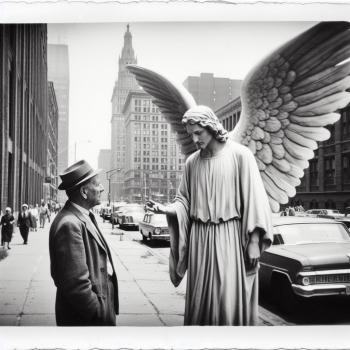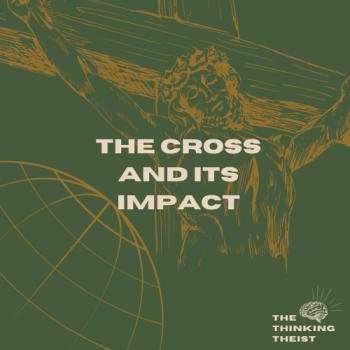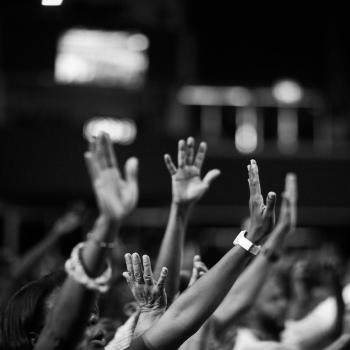 By Wajahat Ali
By Wajahat Ali
In 7th-century Arabia, the storyteller was valued more than the swordsman. The audience sat on the floor surrounding the gifted orator as he captivated the eager listeners with beautiful poetry narrating their history. In the 21st century, the art form may have evolved to include motion pictures, TV shows, theater productions, novels, and standup comedy, but they all serve the same function: storytelling.
Ideas and principles are most effectively communicated and transmitted when they are couched in a narrative. Stories, whether they concern the etiquette and biography of prophets or the trials and tribulations of America's founding fathers, inform and influence a cultural citizenry of its values and identity.
Stories of the Prophet Muhammad most effectively communicate the Quran's eloquent exhortation to tolerate and embrace diversity: "O mankind! We created you from a single (pair) of a male and a female, and made you into nations and tribes, that ye may know each other (not that ye may despise [each other])" (49:13). The Prophet's cordial diplomacy and communication with the Christian, Abyssinian King yielded one of the first alliances of the young Muslim community. Furthermore, the Prophet displayed unconditional love for his diverse companions, who comprised the gamut of Arab society including former slaves, orphans, widows, wealthy dignitaries, and non-Arabs.
Similarly, the story of a biracial man with an Arabic name and a Kenyan father elected to the highest office in the land reminds the world that indeed America can live up to its cherished principles of freedom and racial equality, and her citizens are capable of reflecting a magnanimous and egalitarian spirit bereft of prejudice.
If a person were to read these stories comprising the core values of Islamic and American history, one would assume their respective cultural fabrics resemble a generous, messy, lively, colorful mosaic perpetually adding and experimenting with new colors, styles, and hues to beautify its narrative.
And yet nine years after the two towers fell, we hear and see daily stories of vile stereotyping, fear-mongering, and hysteria tearing the frays and revealing miserly and stingy threads unwilling to accept or bind with the "others."
Despite a long and rich history of positive contribution and active participation in American society, many Muslim Americans feel forever trapped by the shadow of 9/11 and thus condemned to being viewed as perpetual suspects by neighbors in their own homeland. Due to the perverse, criminal actions of a deluded minority, Islam has been cast as the perennial "villain" whose limited acting range consists of radical extremist, terrorist bomber, or zealous anti-American bigot. Unsurprisingly, nearly 48 percent of Americans hold a negative opinion of Islam and about half admit not knowing any Muslims.
Around the world, the clichéd story also paints America and all Americans as the "bad guys" who arrogantly stroll into town and violently bully anyone who opposes their might.
If these stories persist with such simplistic, one-dimensional caricatures and formulaic narratives, then the predictable third act can only end in tragedy.
Indeed, several Muslim Americans feel humiliated and under siege living in such a politically loaded, accusatory climate. They resort to angry victimization and reactionary rhetoric, becoming cultural consumers of TV news and media sound bites instead of participating as proactive cultural creators.
And, yet, history has repeatedly proven that pain and love, the most powerful of human feelings, are usually the most potent ingredients to inspire communities with an artistic renaissance. It is not surprising that African Americans and Jewish Americans, two groups who have suffered tremendously in past centuries, have arguably been some of America's most influential cultural creators. Both groups created stories drawing upon their unique experiences, tragedies, languages, and histories, which eventually became infused with the larger American narrative. If Muslim Americans can learn from the struggles of minority groups before them, we will realize the best ways to escape "our shadow" is by finally telling our own stories in our own voices and using art and storytelling as a means of healing and education.




